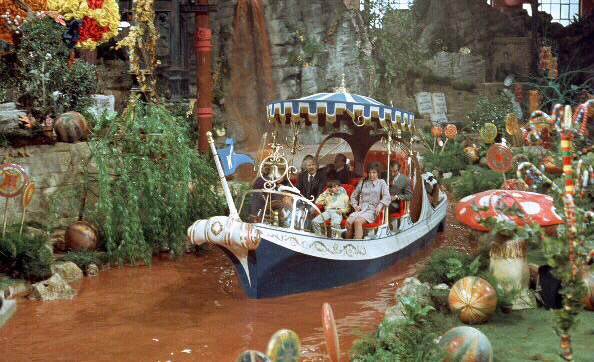
Image courtesy of Saturday Morning Central
If you were to name a ‘comfort food’ – something that you will reach for when you’re feeling down – chances are that chocolate would be in your top 3, if not the first thing out of your mouth. Now a study out of University of California, Davis, and University of California, San Diego published in the Archives of Internal Medicine shows that there is a link between chocolate consumption and actual depression.
They note that “of 931 men and women in the San Diego area showed that people who ate an average of 8.4 servings of chocolate per month tested positive for possible depression, while people who ate only 5.4 servings per month did not test positive. People who ate 11.8 servings per month tested positive for probable major depression, a more severe form of the condition.”
The participants “ages ranged from 20 to 85; 80% of the group was white; 70% were male; more than half were college graduates; and most were not severely overweight or obese — the average body mass index was 27.8.”
However, as is generally true in this sort of survey, there was no ability to differentiate correlation and causality.
What the study could not say was why people who are depressed eat more chocolate.
It could be that depression stimulates chocolate cravings, and people eat chocolate as a sort of self treatment, confirming some studies on rats that suggest chocolate can improve mood, the authors said.
Or, it could be that depression may stimulate chocolate cravings for some other reason without providing any mood benefit. People in the study did not have any such “treatment benefit” from chocolate, the team said.
And they said it may be that eating a lot of chocolate actually causes people to feel depressed, another possible explanation for the association they saw in the study.
It may be something physiological about chocolate, such as providing additional antioxidants. Or the mood-boosting effect of chocolate could be fleeting, like the temporary euphoria from drinking alcohol, leaving people feeling even lower after the brief euphoria has passed.
“Distinguishing among these possibilities will require different study designs,” the team said.
So what should we learn from this? In theory, it seems that the researchers would like us to look at the link between chocolate and depression from two possible angles: one that depression causes chocolate cravings, and the other that something related to chocolate consumption is linked to depression.
It is the latter that is the source of my ‘no duh’ thought: I mean, who hasn’t experienced ‘post junk food regret’? After eating an entire bag of potato chips, or a carton of ice cream, or a large size chocolate bar. And given that according to the study most of the participants were already at least somewhat overweight – a BMI of 27.8 rates as ‘overweight’, and since it was the mean, that means 50% were HIGHER than that.
Is it surprising that someone who is at least slightly overweight who is consuming more than a small amount of chocolate on a regular basis is going to have some issues either related or unrelated to their weight?
Further, I’m sure this would correlate well with similar studies showing how people who binge shop or binge drink or binge gamble are similarly depressed, as was shown here and here.
The linkage here is impulsivity, which is defined as follows: “Impulsivity (or impulsiveness) is a type of human behavior characterized by the inclination of an individual to act on impulse rather than thought. Although part of the normal behavior, impulsivity also plays a role in many mental illnesses.”
I’m not sure about your house, but when my wife and I tear through an entire bag of peanut butter M&M’s in a single sitting, it is seldom a well planned dietary consideration. It is more the case where we grab the bag, get to eating and chatting and next thing we know the bag is empty and we feel like crap.
In other words, inject depression, a sense of hopelessness regarding weight control or other things into a situation with the ‘feel good food’ chocolate and the resultant correlation of consumption and depression is unsurprising … well, to me anyway. What do you think?

I agree with your summation. Let’s face it, food is a socially acceptable means of self-medication. What do people want to do when families get together? Encourage each other to eat as that’s what you’re supposed to do. What do friends and family do when they find out you are sick/not feeling well? Bring over food! What are most of our major holidays associated with? Food! It can become a vicious circle for some who overindulge. Someone with an eating disorder feels guilty or depressed. What’s the easy way to feel better? Eat something like chocolate, which then unfortunately can contribute to the weight problem and then may only exacerbate the guilt and sense of depression and hopelessness.
Study Shows Link Between Depression and Chocolate Consumption …: If you were to name a 'comfort food' – somethin… http://bit.ly/9AxQxV
Study Shows Link Between Depression and Chocolate Consumption … http://bit.ly/bEGZ1z